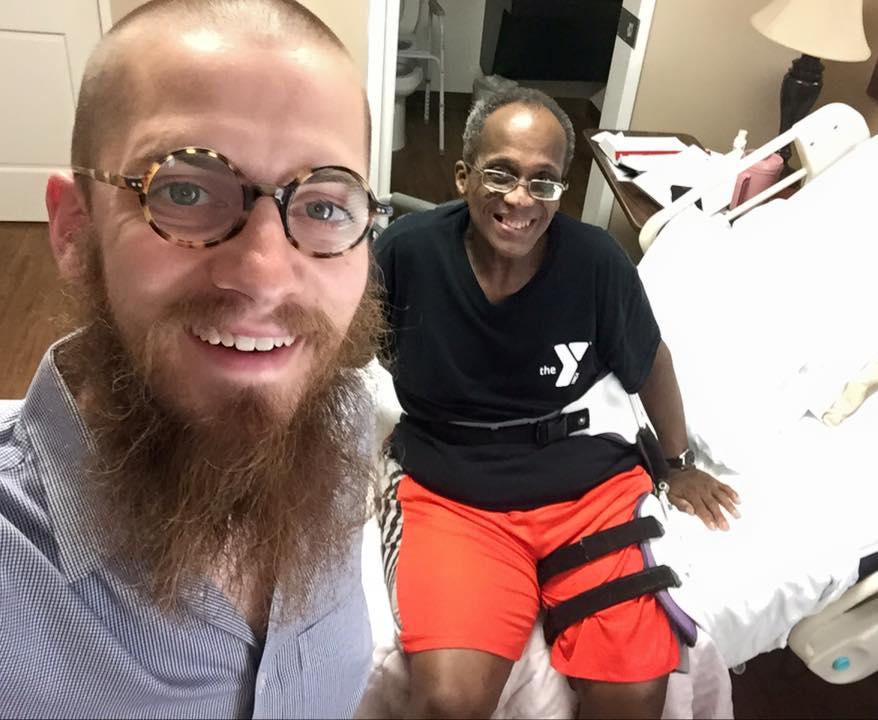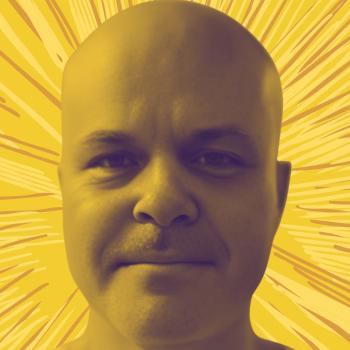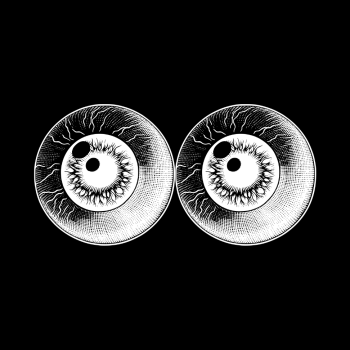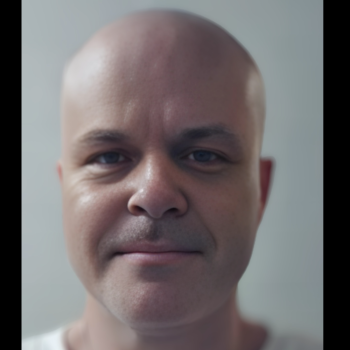* This interaction is derived from a recent conversation that I had with Rev. Dr. Garth Baker-Fletcher at a rehabilitation facility where he is recovering from hip surgery. A retired professor, Baker-Fletcher is the author of Somebodyness: Martin Luther King, Jr. and the Theory of Dignity (1993), Xodus: An African-American Male Journey (1996), My Sister, My Brother (with his wife Karen) (1997), Black Religion After the Million Man March (1998), Dirty Hands: Christian Ethics in a Morally Ambiguous World (2000) & Bible Witness in Black Churches (2009). A cherished friend, I affectionately call him Brother Garth.
J: Brother Garth thank you for this time. How do you define pain?
G: I am going to string some defining words together for you. Pain is a shocking, singular, grading, raw, fierce, determined, frightening and empowering experience. How would you define it?
J: Pain is a jolting and dislodging experience that we always want to get out of. We always want to find the way to make it stop. How do you deal with constant pain?
G: I have had lupus since I was a child. The medicine they gave me to treat the lupus destroyed the ball joint in my hip. Literally, I have surgery after surgery to fix this hip implant (it looks like a tadpole). My daughter has always called me handicapable. I’ve always pushed back against being in a wheelchair. Regardless, I had ten surgeries in the first ten years that I had this implant and I’ve had to just stop counting since then. The pain was jolting and dismembering at first and has since become a chronic event that keeps me away from the business of life. Being in regular pain and in the hospital is an isolating experience. I often feel very alone. People make the assumption that they can’t comfort you and therefore they stay away. The sense of solitude is an additional corresponding painful sickness.
J: The spiritual pain seems as raw as the physical pain.
G: There is no question about it Brother Jeff. You have develop a spirituality capable of pushing back. You have to dare to believe in a God that has the strength and fortitude to carry you through. Do you think there is such a thing as social pain?
J: The pull of the normative is strong. Our sickness is that we expect everyone to be like everyone else. We create categories and force people to fit. If you are black then you need to act black. If you are gay then you need to act gay. If you are white then you need to act white. The categories become a prison that does not allow for individual expression. Our uniform expectations are the weapons that we use to inflict social pain on others. Do we not understand that queerness is a gift from God? Living into our spirit we are able to combat the sickness of uniformity. There is nothing more painful than living in a society that expects you to be something other than you. So what we do is we get on a pain management regiment. Our spiritual life is our only form of pain management. To be born is to suffer. We have to find a way to survive despite the pain. Unfortunately, we have developed this sense that everything is supposed to be safe and pain free. We are delussional. The only way we can live honestly is by pushing into the danger of life with an eschatological hope that God will meet us in the end.
G: I have had five surgeries in the last year. I am now in a position of chronic pain. Over and over I have experienced the shock of pain. I feel this is very connected to our social sicknesses. Those who exist outside our normativities are faced with shocking pain over and over. Violence is a regular occurrence because the antinormative is the greatest threat to normativity. At 59, I have finally come to the conclusion that I am disabled. To be disabled in this society is to be on the outside. The only way the disabled person gets to come back in on the inside is if you conform to the expectations of the society. Normativism is the meta-ism. All other oppressions flow out of a concept of normal. I will probably be in pain the rest of my life. Our society teaches us that pain is something we have to get over. What happens when you’re not going to get over it?
J: What happens if we start to view disability as a higher level of ability? It seems to me that those who are learning how to live through pain on the level that you are…are almost superhuman. I think about my dear friend Rev. Justin Hancock. From a motorized wheelchair, Justin does more in one day than most people accomplish in a lifetime. Disabled persons seem to be functioning at a higher level of spiritual ability.
G: When I started experiencing the othering of disability in my younger years, everyone assumed that I just needed to be healed. I have had no more painful of experiences than people trying to heal me. As I have grown older, I have realized that often I am the one that needs to be doing the healing.
J: Have you ever thought of yourself as superhuman?
G: I had a dream one time along those lines. When I was a teenager, I dreamed that I carried all the pain that I had on my back. I was so strong. I looked like a superhero. I had muscles everywhere. When I looked at the rest of the world, all the people looked like stick figures. I have thought about that dream ever since. In the mystical nature of that experience, I realized that going through this pain was a gift that I could give the world. I think there is a sense that the disabled are spiritually superhuman. I think you have some of that.
J: In my own suffering with bipolar disorder, I have to come to a place where I saw my mental disability as a mental ability.
G: We have that connection as well. In the words of some of the disability theorists, maybe we should call ourselves differently-abled.
J: I still don’t think that gets at the spiritual point we are making…that disability is a higher spiritual level of ability.
G: On some level, I agree with you. Although, I think we are on the right track. We have got to lead an uprising against these normative terms and ideas that have oppressed our ability to truly see and experience our self and each other for so long.
Amen.













